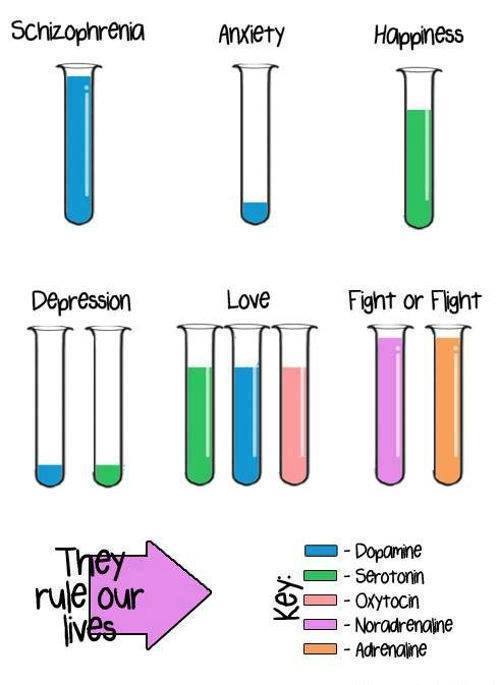A few days ago, I posted this image with the caption, “There is something awesome about this”:
I think it’s amazing that science has discovered how our fluctuating biochemistry can determine our emotions. Love, according to the chart, is a chemical cocktail of schizophrenia, happiness, and pleasure. Now, some people think that my comment about the image being “awesome” is laid with irony, that this graphic was intended to trivialize human emotion.
Science and science-oriented people both get a negative reputation sometimes; because of coming off as emotionless, detached, objective, unsentimental, incapable of awe, and unromantic. As for the chart above, it’s easy to assume that science-oriented people have a tendency to simplify and trivialize love by reducing it to a simple consequence of biochemicals.
However, in my opinion, scientifically explaining love doesn’t trivialize it. In fact, if anything, science enhances our idea of love. For one, science provides evidence for love. Without science, the romantic concept of love is pure conjecture, and we can dismiss romantic statements as hyperbolic anecdotes. Science, however, concretized this idea; love is no longer just a “word,” a symbolic approximation of a feeling, but an actual biological condition that occurs when an individual is producing high levels of serotonin, dopamine, and oxytocin.
But that’s not just why I thought that the image was awesome.
See, science can explain that the good feelings I have are caused by elevated biochemical levels, but it can’t explain why my exposure to the person I love causes my biochemical levels to elevate. What I found just as fascinating, apart from being informed about the chemicals that influence my emotions, is the seemingly eternal gap between how I love, as explained by the rise in my biochemical levels (serotonin, dopamine, oxytocin), and why I love my significant other.
I found scientific attempts at explaining why people love who they love, but even those, I found romantic.
According to evolutionary psychology, I selected my significant other because her sexiness is an indication that she is fully capable of replicating my genes.
Why is this romantic? Think of it this way, the continued survival of any living race is only enabled by the living’s insatiable desire. Beings that are alive have been desiring for millions of years, and we’re not done yet. If desire ends, the human race goes extinct shortly after.
I think it’s awesome to think that my desire for my significant other is part of something bigger, something epic, that has been going on for millions and millions of years.
For some physicists, love is a neurological condition that could be compared to hunger or thirst, only more permanent. People have been fantasizing about eternal love, not knowing that it was eternal to begin with, as eternal and as primal as our need to eat.
Neuroscientists discovered that falling in love can produce pleasurable feelings as if one used cocaine, but also affects intellectual areas of the brain. It’s also been discovered that falling in love takes about 1/5 of a second. So, that means, it took me less than a second to fall in love with my significant other, and all those myths about love at first sight are not actually myths.
Reading romantic literature about eternal love, love at first sight, and insatiable desire is exciting. It allows us to fantasize that the romantic feelings we have for our significant other is just as intense, as spontaneous, and as permanent. But you know what is more exciting than that? Finding evidence that your romantic feelings for your significant other is (or, at least, could be) as eternal, as spontaneous, and as permanent as love in poetry.
Image Source: https://www.facebook.com/


